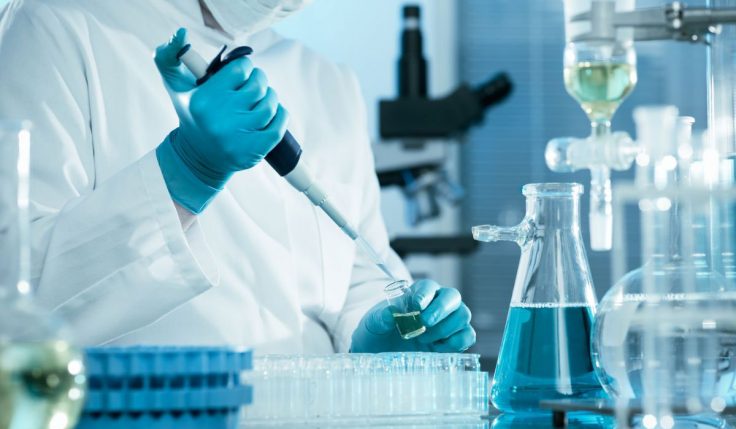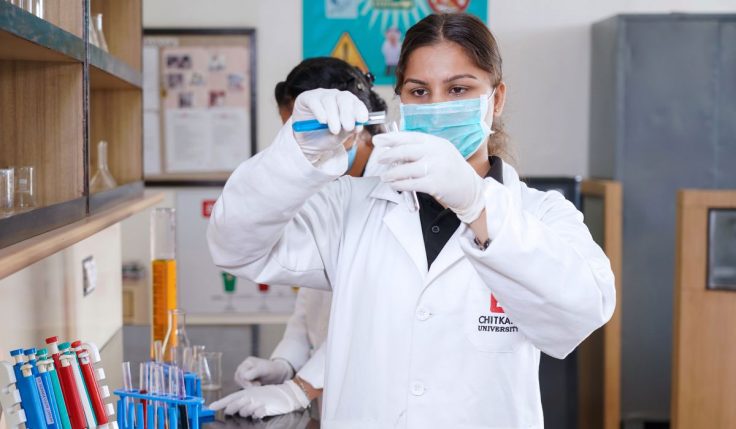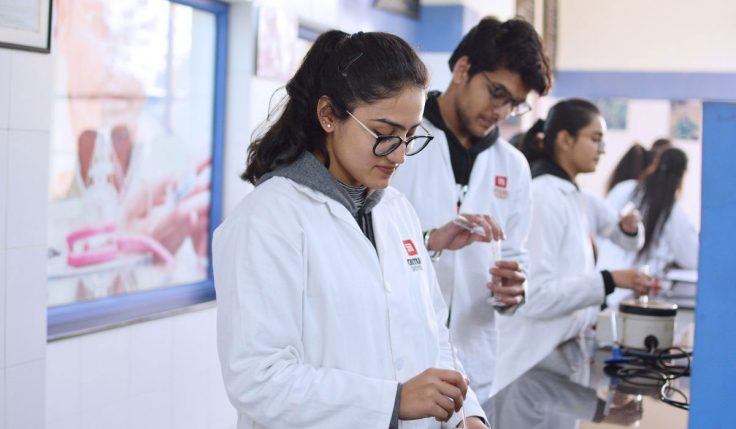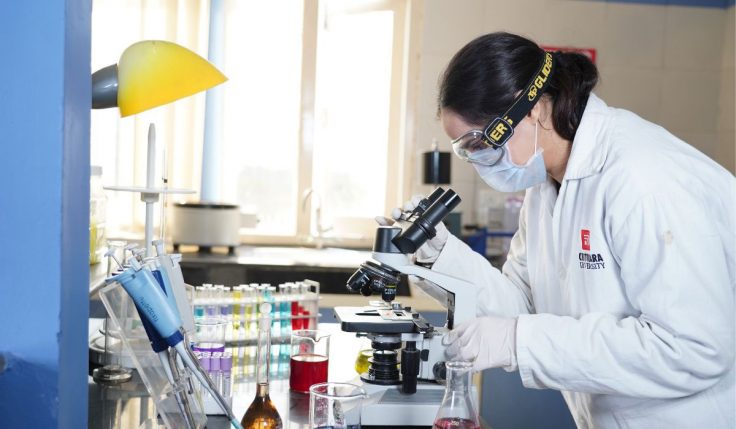Introduction
You can get into an area where science, medicine, and new ideas all come together with a Bachelor of Pharmacy (B.Pharm) degree. It is life-changing for people who want to become pharmacists to learn about the complicated area of pharmaceutical sciences. This blog post talks about a lot of different parts of a B. Pharm program, from the difficult coursework to the interesting job options it offers. Join us as we learn more about this fun and rewarding way to get educated as we make our way through the pharmaceutical world.
Curriculum
The curriculum for the B. Pharm program has been carefully thought out to give students the skills and knowledge they need to have a successful job in pharmacy. The university usually starts with courses in microbiology, biochemistry, and organic and inorganic chemistry to give students a basic understanding of the pharmaceutical sciences. As they go through the course in the institute, students learn more about medicinal chemistry, pharmacology, and pharmaceutics. They also learn how drugs are made and what they are made of.
Students put what they’ve learned in the classroom into practice by working in the lab to improve their skills in making medications, analyzing them, and making sure the quality of the medicines they make. Also, industry placements and internships give future pharmacists invaluable hands-on training that lets them use what they’ve learned. This mix of classroom learning and real-world experience makes sure that graduates have both a strong academic background and the skills they need to work in the pharmaceutical business, which is very complicated.
Putting science and patient care together
One thing that makes a B. Pharm course unique is that it focuses on the link between research and patient care. Outside of the lab, students take classes that cover pharmacology, patient therapy, and the therapeutic uses of drugs. As a pharmacist, one of your main jobs is to know how drugs effect people and communities. This is taken into account by including parts of pharmacy practice and clinical pharmacy in the program.
To make sure that drugs are used safely and effectively, pharmacy students learn how to be healthcare experts. Along with the technical parts of medicine, the curriculum includes the social and moral aspects of being a pharmacist. When they finish this all-around program, students are ready to become well-rounded healthcare workers who can make smart decisions that help patients.
Embracing progress in technology
Pharmacy is a field that is always changing, and technology is becoming more and more important for finding new drugs, taking care of patients, and making the field better. The newest technology that is changing the pharmaceutical business is taught to students in pharm programs so that they can keep up with these changes. Students can learn about the future of pharmacy and how technology is changing the way healthcare is delivered by looking at how artificial intelligence is used in drug research and pharmaceutical informatics.
The coursework also promotes adaptability and critical thought, which gives graduates the assurance to use the newest technologies. To make sure that B. Pharm graduates are ready for both the current pharmaceutical landscape and the constantly changing landscape of future breakthroughs, this proactive approach is used.
Different Career Paths
With a B. Pharm., you can go in a number of different directions, not just as a neighborhood pharmacist. Graduates may choose to work on new ways to make drugs or help make important finds in the field of pharmaceutical research and development. There are job openings in the pharmaceutical industry in areas like regulatory affairs, production management, and quality control. Experts promise that strict rules and guidelines will be followed.
Clinical pharmacy jobs in healthcare sites are important job options because pharmacists work with healthcare teams to improve patient outcomes. In addition, people who finish from B.Pharm programs can have a big impact on public health through the growing field of pharmacovigilance, which is all about keeping an eye on and making sure that pharmaceutical products are safe.
The View of the World
In the pharmaceutical business, there are no geographical limits. Many pharmacy schools take a global view, recognizing that drug markets and healthcare systems around the world are connected and depend on each other. Students might be able to take part in foreign exchange programs, work together with people from other countries, or learn about how pharmaceuticals are handled in other countries.
This view of the world is especially important for people who work in the pharmaceutical industry, who work on a much bigger scale than their own towns. If graduates know about the global pharmaceutical environment, they will be better prepared to use pharmaceutical interventions to solve global health problems or to work with researchers from other countries on joint projects, both of which can lead to big improvements in healthcare for everyone.
To sum up, getting a Bachelor of Pharmacy (B. Pharm) is a fun and varied way to learn about the science behind drugs. The program gives students the knowledge and skills they need to work in the rapidly changing pharmaceutical industry. It does this by offering a wide range of job paths, a comprehensive curriculum with a focus on patient care, and the use of technology.
Also, read this blog post: What are the Benefits of B. Pharma?
In addition to a degree, people who want to become pharmacists graduate from B. Pharm schools with the information, skills, and attitude they need to do well in a field that combines science and healthcare. Graduates start a difficult, educational, and eventually rewarding journey that will shape their future as healthcare professionals.
The Bachelor of Pharmacy (B. Pharm) program at Chitkara College of Pharmacy is a comprehensive four-year course designed to produce skilled pharmacy professionals. Students gain in-depth knowledge of drug development, research, and patient care, preparing them for high-paying careers in the healthcare industry. The program blends theoretical learning with practical applications, ensuring students are well-equipped to meet the demands of the pharmaceutical sector.
A significant feature of the B. Pharm program is the mandatory six-month industrial training, which provides students with real-world experience and exposure to contemporary industry practices. This hands-on training helps students develop practical expertise and enhances their employability. The curriculum covers four major specializations: Pharmaceutics, Pharmacology, Pharmaceutical Chemistry, and Pharmacognosy, offering a well-rounded education in various aspects of pharmacy.
Chitkara College of Pharmacy’s B. Pharm program is recognized by the Pharmacy Council of India (PCI) and is known for its high-quality education and excellent placement record. Students benefit from early exposure to diverse career pathways, including roles in biomedical research, pharmaceutical management, and clinical practice. The college’s strong industry network ensures that graduates are industry-ready and can seamlessly transition into top pharmaceutical companies and healthcare organizations.
Graduates of the program can pursue careers as drug analysts, drug inspectors, manufacturing executives, corporate executives, QA/QC executives, clinical research associates, and market development executives. Leading pharmaceutical companies like Abbott, Cipla, GlaxoSmithKline, and Sun Pharma regularly recruit from Chitkara College of Pharmacy, reflecting the program’s reputation for producing highly competent pharmacy professionals.






